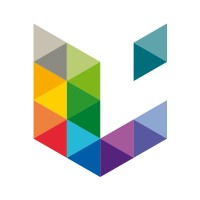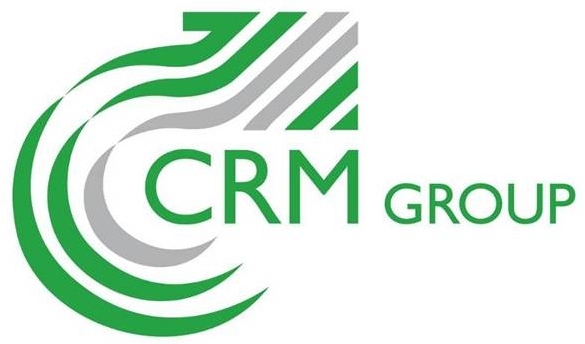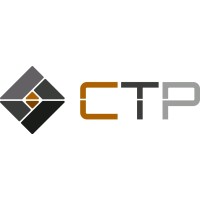Freedom
The Freedom project focuses on the development of innovative technologies for the sustainable production of magnesium in Wallonia, using the recycling of refractory materials and the optimisation of production processes to minimise environmental impact.
- Raw materials
- Practices of circularityNeed help with filters?
Dates
2024
Leader

Stakeholder Leader
Université de Liège
4000 Liège

Stakeholder Leader
CRM Group - Centre de Recherches Métallurgiques
4031 Seraing

Stakeholder Leader
Institut interuniversitaire des Silicates, Sols et Matériaux
7000 Mons

Stakeholder Leader
Centre Terre et Pierre
7500 Tournai
About
Freedom ULG-Artificial intelligence and robotics:
The core of the Freedom ULiège project is the development of a breakthrough technology for the automated sorting of end-of-life refractory materials. Together with the hydrometallurgical and carbothermal reduction processes developed within the Freedom project portfolio, this technology is one of three innovative technological building blocks aimed at setting up, in the Walloon Region, a magnesium production chain based on end-of-life products and secondary raw materials from the circular economy.
The sorting technology proposed is based on the fusion and classification, using artificial intelligence algorithms, of data from an unprecedented combination of sensors (3D, colour, Transmitted X-rays and Laser Induced Spectroscopy), making it possible to capture the maximum economic and environmental value contained in these end-user refractories by maximising their recycling in high value-added sectors.
The project will also include an analysis of the environmental impact of the complete process proposed in the Freedom portfolio. This analysis is particularly important in the magnesium metallurgy sector, where current production methods are particularly energy-intensive and have a significant impact on the environment.
Freedom CTP:
The Freedom CTP project has two main strands.
The first involves the chemical extraction and recovery of the magnesium oxide contained in used dolomitic refractories. These refractories constitute final waste and are usually landfilled as hazardous materials. The magnesium oxide is extracted using an innovative process leading to the production of a high-value magnesium carbonate or hydroxide. The process requires little energy and has a low environmental footprint. The aim of the research is to optimise the process on a laboratory scale and to demonstrate its performance on a pilot scale using equipment acquired as part of the MC² - CTP project in the MC² Mineral Circular Center portfolio.
The second axis of the Freedom CTP project is aimed at demonstrating a new process for reducing magnesium oxide to metal. The aim is to move up the value chain and secure supplies in Wallonia and Europe of a key metal for reducing our CO2 emissions. The process developed has the advantage of being much more efficient than competing processes. As part of the Freedom CTP project, pilot tests will be carried out using equipment acquired in the MC² CTP project (MC² Mineral Circular Center portfolio) to demonstrate the advantages of the new technology.
Thanks to the development of these new technologies, the Freedom CTP project should promote the creation in Wallonia of a new sector that will strengthen the circularity of materials and reduce Walloon and European dependence on Chinese imports.
Freedom INISMA:
Despite its high natural abundance (2.3% in the earth's crust and the third most abundant element dissolved in seawater), magnesium extraction has a heavy impact on landscapes and ecosystems. Today, around 85% of the magnesium metal and over 50% of the magnesia exported worldwide comes from China. The two other largest deposits are in Russia and North Korea.
In order to circumvent the geostrategic access restrictions and China's virtual monopoly on this material, without destroying local natural resources, the giant RHI-Magnesita has developed a magnesium waste recycling process and is aiming for a recycling rate of more than 10% by 2025, saving 1.8 tonnes of CO2 for every tonne of recycled magnesium used.
Because of its steel industry, Wallonia also has a large flow of unrecycled magnesia waste.
The FREEDOM-INISMa project aims to contribute to the development of a Walloon magnesia-magnesium production process, based on this waste source.
FREEDOM-INISMa has 2 objectives:
To map all the suppliers of used materials rich in magnesium, in Wallonia and outside Wallonia. This work also includes an analysis of available used materials.
Diversify the recovery potential by developing an industrial solution with high added value and a low environmental footprint that will make extensive use of the pure magnesia obtained using the process developed in the FREEDOM-CTP project. For this 2nd objective, INISMa is targeting additive manufacturing of ceramic parts for the foundry and powder metallurgy sectors.
Freedom CRM:
The core of the Freedom CRM project is the development of an innovative process for producing magnesium (Mg) metal from magnesia (MgO). This project complements the automated sorting of end-of-life refractory materials and a hydro-metallurgical process to extract magnesia from them, developed within other projects in the FREEDOM portfolio. Together, these projects aim to set up a complete magnesium production chain in the Walloon Region using end-of-life products and secondary raw materials from the circular economy. Securing the supply of magnesium metal will enable more widespread use of light alloys, which is particularly necessary to reduce energy consumption in transport.
The study and development of the magnesium metal production process (from TRL3 to TRL5) will be based on the following stages:
Firstly, the magnesia will be conditioned in the lab and then on a pilot scale in the form of self-reducing agglomerates (MgO + carbon) with well-defined characteristics, enabling them to be used optimally in the carbo-thermal reduction stage. The use of carbon from the recycling of end-of-life plastics or batteries will also be considered, in conjunction with the FREEDOM ULG project.
Carbo-thermal reduction involves heating a bed of these agglomerates to high temperature using electrical heating and inert gas, so as to volatilise the magnesium and then recover it using an original quenching technique at lower temperature via a collector metal such as tin (Sn), enabling it to be recovered without reoxidation. The optimum operating parameters for this innovative process will be established within the FREEDOM CRM project by combining thermodynamic simulation and laboratory tests; this will lead to recommendations and design data for the carbo-thermal reduction prototype to be built as part of the "MC2" ecosystem.
The actual reduction tests carried out on this prototype will enable the production of one to several kilograms per test of an alloy combining magnesium and its collector metal.
Finally, this alloy (typically Mg-Sn) will be purified by vacuum distillation to obtain metallic Mg that can be used in high added-value applications and products. The purities obtained will enable the FREEDOM SIRRIS project to assess the possibilities of recovery in several outlets.
All the process data calculated or collected during the trials will be used by the FREEDOM ULG project to carry out an analysis of the environmental impact of the entire process, which is important in the magnesium metallurgy sector, where current production methods are particularly energy-intensive and have an impact on the environment.




